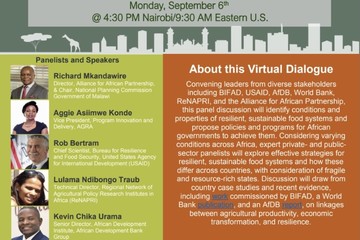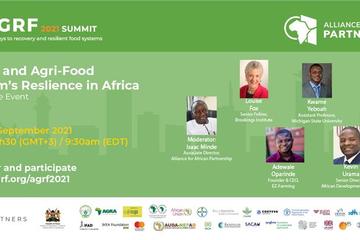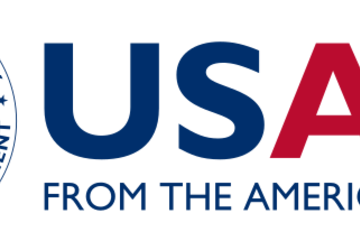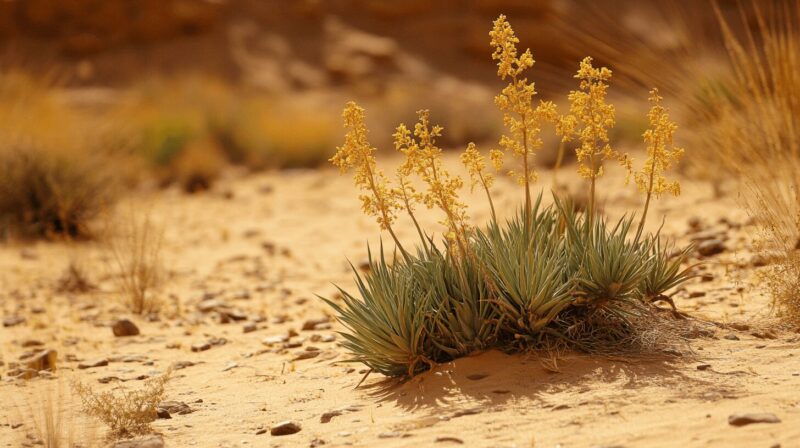Feed
-
SUPPORT TO YOUTH DEVELOPMENT AND EMPOWERMENT TO BECOME SELF RELIENCE.most of the youth in northern uganda were affected by the 20 years war led by lord resistant army. currently youth have gone back to settle and become productive but they are being hindered by inadiquate knowledge and high cost of production. this has made most of thye youth most especially young girls to get pregnant as well as being at high risk of contracting HIV/AIDS. most ladies have resulted to selling sex to earn aliving for their young kids and boys has resulted to taking scopion and marajwana. in the vision, this youth can still be transform and become productive through providing hand on skills like, hair dressing trainning, tailoring, mechanics and cake production etc. most of the youth are longing to get the skills but they cannot afford the cost of paying tiution. in this partenship, acquiring machine like sawing machine from donation. the organisation do have space,few staff that can provide trhe training.By: ODUR MOSESSaturday, Sep 11, 2021YOUTH EMPOWERMENT
-
AGRF 2021 Summit: Agricultural Transformation for Sustainable and Resilient Food SystemsAAP is excited to announce the “Agricultural Transformation for Sustainable and Resilient Food Systems” session at The AGRF Pre-Summit event on Monday, September 6th. AGRF and its partners organized a three-day summit, September 7-10 around the theme of “Pathways to Recovery and Resilient Food Systems,” and this will be just one of the many important discussions occurring. The AGRF 2021 Summit is a defining moment in highlighting and unlocking the policy, and financial commitments and innovations the continent has made and that it continues to work towards achieving. AAP recognizes the importance of these sustainable development goals and is looking forward to the participation of our colleagues throughout the Summit. Register for this year’s summit: https://agrf.org/By: Raquel AcostaSaturday, Sep 4, 2021AGRI-FOOD SYSTEMS

-
AGRF 2021 SummitAAP Africa Office Associate Director, Isaac Minde, will be moderating the “Youth and Agri-food System’s Resilience in Africa” session at The AGRF Summit Pre-Day event on Sept. 6th. AGRF and its partners organized a three-day summit, September 7-10 around the theme of “Pathways to Recovery and Resilient Food Systems”. The AGRF 2021 Summit is a defining moment in highlighting and unlocking the policy, and financial commitments and innovations the continent has made and that it continues to work towards achieving. AAP recognizes the importance of these sustainable development goals and is looking forward to the participation of our colleagues throughout the Summit. Register for this year’s summit: https://bit.ly/3xVWZp2By: Raquel AcostaFriday, Sep 3, 2021AGRI-FOOD SYSTEMS+1

-
Partnerships for Enhanced Engagement in Research (PEER) 2021/2022 SolicitationOn August 23, 2021, PEER released its latest call for proposals, which aims to support research projects that focus on the impacts of COVID-19 and potential solutions that can emerge from this pandemic. The COVID-19 pandemic has led to unprecedented global challenges and uncovered weaknesses in the ability of governments, the private sector, and local and international actors to deliver services and resources across many systems. This has been true in food and agriculture, healthcare, and education, among other sectors. However, the pandemic also has inspired innovation in areas such as digital technology and social organization, and there are many examples of countries or communities effectively coordinating to confront this threat. This PEER funding opportunity looks to support locally-led research projects that (1) aid in our understanding of how shocks such as COVID-19 affect key sectors in developing countries and (2) test approaches to help communities and sectors respond to and mitigate the effects of COVID-19 or similar future shocks.Projects funded under this year’s call for applications will receive one-year awards of up to US $70,000. In addition, they will receive personalized training and guidance from USAID’s Research Technical Assistance Center on developing evidence-to-action plans and communications products. The deadline for submission of pre-proposals is October 22, 2021. For further details please review the Request for Applications.By: Derek TobiasThursday, Sep 2, 2021HEALTH AND NUTRITION

-
Souleymane Bachir Diagne in conversation with Wayne Modest, Aude Christel Mgba, and Ryan Skinner.CONVERSATION | 9 Sept 2021 | 16.00-17.45 CET | Zoom online As part of the Thinking With series, we invite Souleymane Bachir Diagne to discuss his work in conversation with Aude Christel Mgba and Ryan Skinner. In African Art as Philosophy: Senghor, Bergson and the Idea of Negritude (2011), Souleymane Bachir Diagne writes of Léopold Sédar Senghor’s lifelong project to think through “affirmation of the self [as] a natural reaction to colonial domination” (188): “Beyond affirming the aesthetic virtues revealed in pieces of art created by Africans, Senghor wished to stress the metaphysics they offered for reflection: along with the art through which it had been written, he wished to rescue a worldview, a feeling and a thinking that were also contributions to the humanism of tomorrow by African-being-in-the-world” (7-8). “In our efforts at the Nationaal Museum van Wereldculturen to better honor and listen to the lives the ‘objects’ in our museums have led and wish to lead, we hope to better think more reciprocally in relationship to these objects and the communities invested in their being. We are compelled by Diagne’s work to think more deeply about the histories, afterlives, and temporalities in which our objects exist. How might we allow the objects to speak better from themselves, for themselves, while all the while honoring the complex positionalities of those who are enjoined to engage these objects? We understand those persons who are called upon to better honor the objects to be: those living in the places where the objects were obtained (gifted, seized, stolen); those who relate to African art from diasporic sensibilities; and those who are implicated by a colonial past as perpetrator and/or who benefit from systems of privilege, as per Michael Rothberg. Together, in Relation, and even thanks to the tensions implied by Glissantian Opacity, we hope to better be responsible to our work and engagement as professionals and visitors to our ethnographic museums.” More about Zoom event: https://www.materialculture.nl/en/events/thinking-souleymane-bachir-diagne-african-art-phi... Registration for Zoom event: https://us06web.zoom.us/webinar/register/WN_X6gKuBv3RVuw5FEGTCE6uwBy: Raquel AcostaThursday, Sep 2, 2021CULTURE AND SOCIETY+1
No Preview Available -
Call for Abstracts: "Relations to Plants as a Heritage From Below in African Cities"The deadline for submitting a paper for the panel "Relations to Plants as a Heritage From Below in African Cities" at the next African Studies Association of Africa (ASAA) conference, at the University of Cape Town (South Africa) from 11 to 16 April 2022, has been extended to 30 September. The submission of the paper proposal (max. 250 words) has to be done via this platform: https://2022conference.as-aa.org/submit-work/call-for-abstracts/ ASAA encourages paper presenters to reflect on the conference theme and address issues outlined in the theme description. With a massive number of abstracts submitted for presentations at ASAA conferences, the ASAA2022 Conference Committee is dedicated to guaranteeing a timely and fair review process with the international norms of double-blind peer review. The decisions of the Scientific Committee will be communicated on 14th November 2021. ASAA early-bird registration will open on 1st November 2021. See eligibility criteria and learn about the application process in the link below! Call for abstracts – ASAA2022 (as-aa.org) For any queries with the above, please email: as-aa2022.org@uct.ac.zaBy: Raquel AcostaThursday, Sep 2, 2021CULTURE AND SOCIETY+1
No Preview Available -
Call for Manuscripts: African Journal of Rural DevelopmentAbout the JournalThe African Journal of Rural Development (AFJRD) is an online open access scientific journal that publishes articles on a quarterly basis (March, June, September, December). It is a multi-disciplinary peer-reviewed journal with an ultimate purpose of sharing and increasing the depth of knowledge on aspects of sustainable rural development. The Journal welcomes submission of manuscripts that meet the general criteria of domain significance and scientific excellence. All articles published in AFJRD will be peer reviewed. AFJRD is an open access journalOne key request to researchers across the world is unrestricted access to research publications. Open access gives a worldwide audience larger than that of any subscription-based journal and thus increases the visibility and impact of published works. It also enhances indexing, retrieval power and eliminates the need for permissions to reproduce and distribute content. AFJRD is fully committed to the Open Access Initiative and will provide free access to all articles as soon as they are published. Call for ArticlesAFJRD welcomes the submission of manuscripts that meet the general criteria of domain significance and scientific excellence, and will publish: Original Research articles: These should describe new and carefully confirmed findings. In addition, experimental procedures and/or approach used by the study should be given in sufficient detail for others to verify work done. The length of a full paper should be the minimum required to describe and interpret the work clearly. Short Communications: A Short Communication is suitable for recording the results of complete small investigations or giving details of new models or hypotheses, innovative approaches and methods, techniques or apparatus. Reviews: Submissions of reviews and perspectives covering topics of current interest are welcome and encouraged. Reviews manuscripts are also peer reviewed. Submission of ArticlesWe invite you to submit your manuscript(s) via email directly to our editor: editor@afjrd.org for publication. Our objective is to inform authors of the decision on their manuscript (s) within a period of three months from the date of submission. Following acceptance, a paper will normally be published in the next issue. The guide to authors and other details are available on www.afjrd.org. You are required to register on the website before submitting your manuscript. In case of any queries, contact us via info@afjrd.org. Submission Timelines:AFJRD receives manuscripts for consideration for publication throughout the year.By: Madeleine FutterThursday, Aug 26, 2021OTHER
 No Preview Available
No Preview Available

Leave a comment